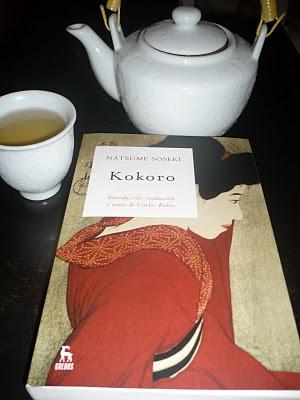


This was signified through the concept of Junshi, a tradition that requires the vassals to follow their lord into death through ritual suicide. As Japan slowly modernized, so do their ideals and culture. Whereas the newer generation was educated, conflicted and had yet to build their own identity. The older generation seemed uneducated and simple.

We saw this most distinctly in the difference between the generations. This was an important time period in Japan, as the country moved from the hold of the clan warlords and into a unified nation, so did the people change. The time was set near the end of the Meiji era. We never really learned much about the Protag - we only knew him as a storyteller, perhaps an anti-protagonist of sorts. It was this vagueness of his wealth that became important later in the story. We never saw Protag work or worry about money, yet neither was he rich. A university student of modest means, he spent his days between studying or seeking out adventures on the streets of Tokyo. The first two parts were told from the perspective of the Protag, who was a young, naive university student. Walking into the book, the language was simple but poetic, with a tinge of Japanese zen and quietness in the scenes described. Popular all over the world and considered a classic in Japan, it explores the motifs of old vs new, of growing up, of family and of, perhaps most importantly, our inner demons. Perhaps not suited for all readers, this book is a very interesting read. If the thought of a coming of age novel set in the 19th century Japan excites the reader, we would heartily recommend picking up a copy.

Unequivocally, while the readers agreed that Part 3 was the most enjoyable part of the book, we couldn’t ignore the fact that Part 1 and 2 played an important role in laying out the canvas for the finale. The book is laid out in 3 parts, of which each has a different emphasis or perspective. As the story progresses, we explore the life of the unnamed protagonist (whom we shall refer to as “ Protag” for the sanity of the reader). A Japanese modern classic, an emotional coming of age, Kokoro tells the story of a recent college graduate finding an unlikely mentor in the secretive and mysterious man known only as “ Sensei”.


 0 kommentar(er)
0 kommentar(er)
